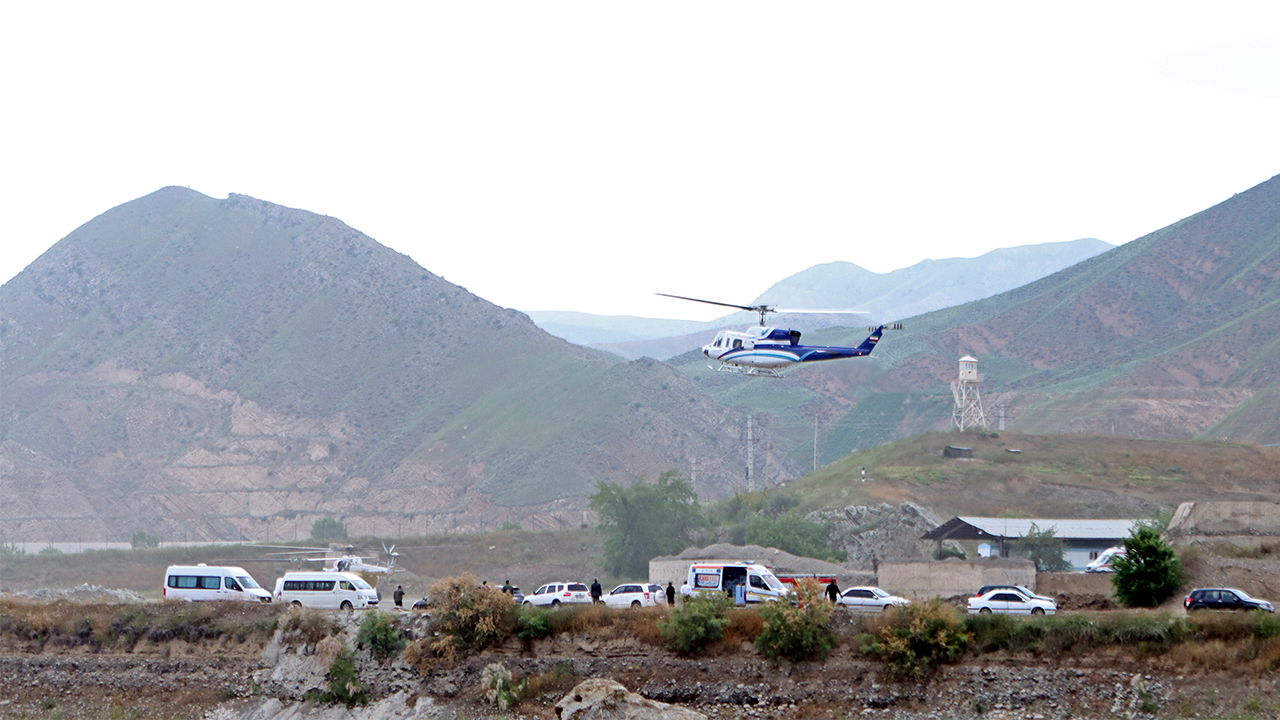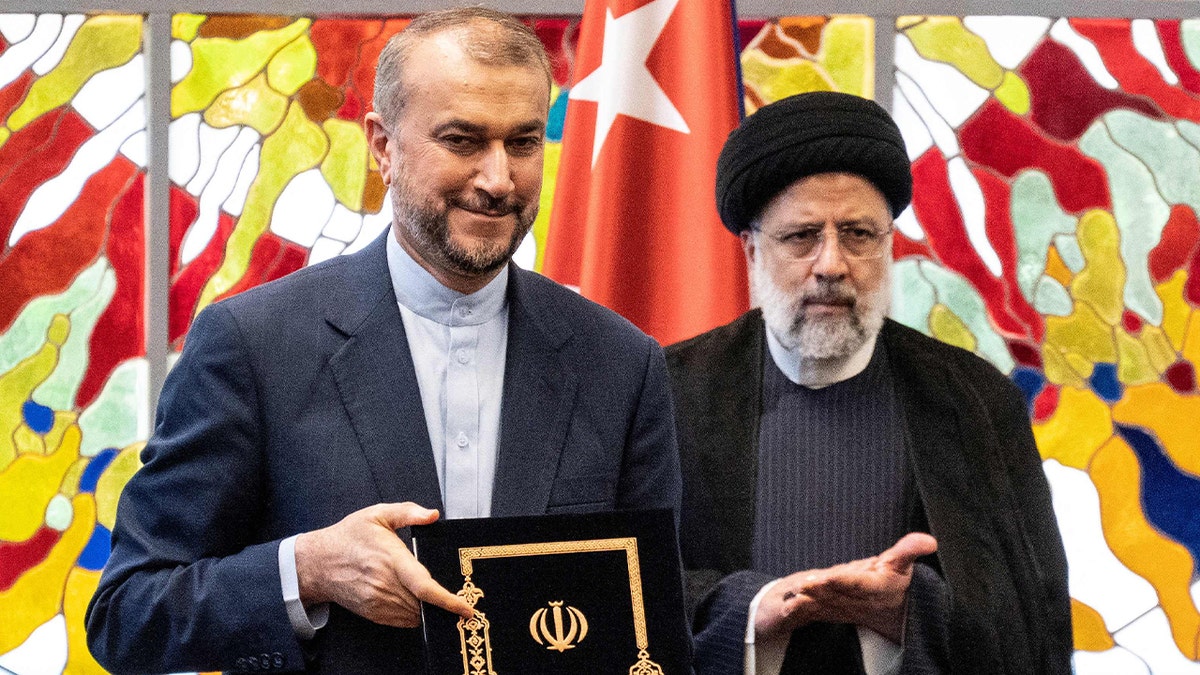World
Atlanta project decried as ‘Cop City’ gets funding approval from City Council

ATLANTA (AP) — Atlanta City Council early Tuesday approved funding for the construction of a proposed police and firefighter training center, rejecting the pleas of hundreds of activists who packed City Hall and spoke for hours in fierce opposition to the project they decry as “Cop City.”
The 11-4 vote just after 5 a.m. is a significant victory for Mayor Andre Dickens, who has made the $90 million project a large part of his first term in office, despite significant pushback to the effort. The City Council also passed a resolution requesting two seats on the Atlanta Police Foundation’s board. The decentralized “Stop Cop City” movement has galvanized protesters from across the country, especially in the wake of the January fatal police shooting of Manuel Paez Terán, a 26-year-old environmental activist known as “Tortuguita” who had been camping in the woods near the site of the proposed project in DeKalb County.
For about 14 hours, residents again and again took to the podium to slam the project, saying it would be a gross misuse of public funds to build the huge facility in a large urban forest in a poor, majority-Black area.
“We’re here pleading our case to a government that has been unresponsive, if not hostile, to an unprecedented movement in our City Council’s history,” said Matthew Johnson, the executive director of Beloved Community Ministries, a local social justice nonprofit. “We’re here to stop environmental racism and the militarization of the police. … We need to go back to meeting the basic needs rather than using police as the sole solution to all of our social problems.”
The training center was approved by the City Council in September 2021 but required an additional vote for more funding. City officials say the new 85-acre (34-hectare) campus would replace inadequate training facilities and would help address difficulties in hiring and retaining police officers that worsened after nationwide protests against police brutality and racial injustice three years ago.
But opponents, who have been joined by activists from around the country, say they fear it will lead to greater militarization of the police and that its construction will exacerbate environmental damage. Protesters had been camping at the site since at least last year, and police said they had caused damage and attacked law enforcement officers and others.
Though more than 220 people spoke publicly against the training center, a small handful voiced support, saying they trusted Dickens’ judgment.
Councilmembers agreed to approve $31 million in public funds for the site’s construction, as well as a provision that requires the city to pay $36 million — $1.2 million a year over 30 years — for using the facility. The rest of the $90 million project would come from private donations to the Atlanta Police Foundation, though city officials had, until recently, repeatedly said that the public obligation would only be $31 million.
The highly scrutinized vote also comes in the wake of the arrests Wednesday of three organizers who lead the Atlanta Solidarity Fund, which has provided bail money and helped find attorneys for arrested protesters.
Prosecutors have accused the three activists of money laundering and charity fraud, saying they used some of the money to fund violent acts of “forest defenders.” Warrants cite reimbursements for expenses including “gasoline, forest clean-up, totes, covid rapid tests, media, yard signs.” But the charges have alarmed human rights groups and prompted both of Georgia’s Democratic senators to issue statements over the weekend expressing their concerns.
U.S. Sen. Raphael Warnock tweeted that bail funds held important roles during the civil rights movement and said that the images of the heavily armed police officers raiding the home where the activists lived “reinforce the very suspicions that help to animate the current conflict—namely, concerns Georgians have about over-policing, the quelling of dissent in a democracy, and the militarization of our police.”
Devin Franklin, an attorney with the Southern Center For Human Rights, also invoked Wednesday’s arrests while speaking before City Council.
“This is what we fear — the image of militarized forces being used to effectuate arrests for bookkeeping errors,” Franklin said.
Numerous instances of violence and vandalism have been linked to the decentralized “Stop Cop City” movement, including a January protest in downtown Atlanta in which a police car was set alight as well as a March attack in which more than 150 masked protesters chased off police at the construction site and torched construction equipment before fleeing and blending in with a crowd at a nearby music festival. Those two instances have led to more than 40 people being charged with domestic terrorism, though prosecutors have had difficulty so far in proving that many of those arrested were in fact those who took part in the violence.
In a sign of the security concerns Monday, dozens of police officers were posted throughout City Hall and officials temporarily added “liquids, aerosols, gels, creams and pastes” to the list of things prohibited inside the building.
Six hours into the meeting, Emory University religion professor Sara McClintock took to the podium and pleaded with councilmembers to reject, or at least rethink, the training center.
“We don’t want it,” McClintock said. “We don’t want it because it doesn’t contribute to life. It’s not an institution of peace. It’s not a way forward for our city that we love.”

World
London court to decide whether WikiLeaks founder Assange is extradited to the US
LONDON (AP) — WikiLeaks founder Julian Assange faces a hearing Monday in the High Court in London that could end with him being sent to the U.S. to face espionage charges, or provide him another chance to appeal his extradition.
The outcome will depend on how much weight judges give to assurances U.S. officials have provided that Assange’s rights won’t be trampled if he goes on trial.
In March, two judges rejected the bulk of Assange’s arguments but said he could take his case to the Court of Appeal unless the U.S. guaranteed he would not face the death penalty if extradited and would have the same free speech protections as a U.S. citizen.
The court said that if Assange, who is an Australian citizen, couldn’t rely on the First Amendment then it was arguable his extradition would be incompatible with the European Convention on Human Rights, which also provides free speech and press protections.
The U.S. has provided those reassurances, though Assange’s legal team and supporters argue they are not good enough to rely on to send him to the U.S. federal court system.
The U.S., for example, said Assange could seek to rely on the rights and protections of the First Amendment but that a decision on that would ultimately be up to a judge. In the past, the U.S. said it would argue at trial that he was not entitled to the constitutional protection because he’s not a U.S. citizen.
“The U.S. has limited itself to blatant weasel words claiming that Julian can ‘seek to raise’ the First Amendment if extradited,” his wife, Stella Assange, said. “The diplomatic note does nothing to relieve our family’s extreme distress about his future — his grim expectation of spending the rest of his life in isolation in U.S. prison for publishing award-winning journalism.”
Assange, 52, has been indicted on 17 espionage charges and one charge of computer misuse over his website’s publication of a trove of classified U.S. documents almost 15 years ago. American prosecutors allege that Assange encouraged and helped U.S. Army intelligence analyst Chelsea Manning steal diplomatic cables and military files that WikiLeaks published.
His lawyers say he could face up to 175 years in prison if convicted, though American authorities have said any sentence would likely be much shorter.
Assange’s family and supporters say his physical and mental health have suffered during more than a decade of legal battles, including taking refuge in the Ecuadorian Embassy in London from 2012 until 2019. He has spent the last five years in a British high-security prison.
Assange’s lawyers argued in February that he was a journalist who exposed U.S. military wrongdoing in Iraq and Afghanistan. Sending him to the U.S., they said, would expose him to a politically motivated prosecution and risk a “flagrant denial of justice.”
The U.S. government said his actions went way beyond those of a journalist gathering information and put lives at risk in his bid to solicit, steal and indiscriminately publish classified government documents.
If Assange prevails Monday, it would set the stage for an appeal process likely to extend what has already been a long legal saga.
If the court accepts the word of the U.S., it would mark the end of Assange’s legal challenges in the U.K., though it’s unclear what would immediately follow.
His legal team is prepared to ask the European Court of Human Rights to intervene. But his supporters fear Assange could possibly be transferred before the court in Strasbourg, France, could halt his removal.
The court could also postpone issuing a decision.
If he loses in court, he still may have another shot at freedom.
President Joe Biden said last month that he was considering a request from Australia to drop the case and let Assange return to his home country.
Officials provided no other details but Stella Assange said it was “a good sign” and Australian Prime Minister Anthony Albanese said the comment was encouraging.
World
Iran's president, foreign minister, other officials confirmed dead in helicopter crash

Iran’s President Ebrahim Raisi, Foreign Minister Hossein Amir-Abdollahian and other officials were confirmed dead on Monday after their helicopter crashed in a mountainous region of the country’s northwest, Iranian state media reported.
State TV said earlier on Monday that there was “no sign of life” at the crash site of the helicopter that was carrying 63-year-old Raisi, 60-year-old Abdollahian and other officials after it made a “hard landing” on Sunday.
The crash site was across a steep valley, according to state media, which gave no immediate cause for the crash.
As the sun rose on Monday, rescuers saw the helicopter from a distance of roughly 1.25 miles, head of the Iranian Red Crescent Society Pir Hossein Kolivand told state media. The officials had been missing for more than 12 hours when the helicopter was observed.
IRANIAN PRESIDENT EXPERIENCES ‘HARD LANDING’ IN HELICOPTER: IRANIAN MEDIA
There was “no sign of life” reported Monday at the crash site of the helicopter that was carrying Iran’s President Ebrahim Raisi and other officials, according to Iranian state media. (Ali Hamed Haghdoust/IRNA via AP)
Raisi and Amir-Abdollahian were traveling in Iran’s East Azerbaijan province when the helicopter made what state TV described as a “hard landing” near Jolfa, a city on the border with the nation of Azerbaijan, roughly 375 miles northwest of Tehran. State TV later said it crashed further east near the village of Uzi, although details remained contradictory.
The governor of the East Azerbaijan province and other officials and bodyguards were also aboard, according to the state-run IRNA news agency. One local government official described what happened as a “crash,” while others referred to it as a “hard landing” or an “incident.”

Iranian Foreign Minister Hossein Amir-Abdollahian (L) and Iran’s President Ebrahim Raisi (R) attend a bilateral agreement signing in Havana, Cuba, at the Revolution Palace on June 15, 2023. (YAMIL LAGE / AFP)
“The esteemed president and company were on their way back aboard some helicopters and one of the helicopters was forced to make a hard landing due to the bad weather and fog,” Interior Minister Ahmad Vahidi said in comments aired on state TV.
WHAT HAPPENS IN THE EVENT OF RAISI’S DEATH? AN IRAN EXPERT WEIGHS IN

Rescue teams are seen near the crash site of the helicopter carrying Iranian President Ebrahim Raisi in Varzaghan in northwestern Iran. (Azin Haghighi, Moj News Agency via AP)
The incident comes as Iran, under Raisi and Supreme Leader Ayatollah Ali Khamenei, launched an unprecedented drone-and-missile attack against Israel last month.
Iran has also faced years of mass protests against its Shiite theocracy in response to a struggling economy and attacks on women’s rights.
The Associated Press contributed to this report.
World
Fake news on the rise as the European elections draw near

Poland’s Prime Minister Donald Tusk, the shooting of Slovakia’s Prime Minister Robert Fico and new EU anti-money laundering rules have all been the target of misinformation recently.
Ahead of the European elections between 6 and 9 June, EU leaders and the European Union itself are increasingly finding themselves as the targets of misinformation campaigns.
Whether it’s an attempt to discredit political rivals or claims about EU regulations, social media is rife with false narratives.
One such example stems from the dramatic shooting of Slovakia’s Prime Minister Robert Fico, which has prompted swathes of politically-motivated misinformation online.
Social media users are claiming that this picture shows Fico’s alleged attacker alongside Martin Šimečka, the father of the leader of the opposition party Progressive Slovakia.
Slovakian media has identified the alleged shooter as self-described writer Juraj Cintula.
However, the picture in the post doesn’t show Cintula and Šimečka together. In fact, the second man in the picture isn’t Šimečka at all, and the photo itself comes from one of Cintula’s book launches in 2019.
Facebook itself has now labelled the post as false information.
The attempted false association of the attack on Fico with his political rivals remains particularly dangerous ahead of the European elections.
Is Donald Tusk ashamed of his Polish identity?
Across the border in Poland, Prime Minister Donald Tusk has been accused of attacking the notion of Polishness as an identity.
A picture posted on TikTok claims that Tusk called Polishness ‘an abnormality’ that comes to him ‘with painful persistence’. However, this is misleading.
The prime minister did state those words, but they come from an article he wrote over 40 years ago.
According to Polish fact-checkers, Tusk’s article critically discusses Poles’ attitudes to reality before confirming that he identifies with his own Polishness, at a time when Poland was a communist satellite of the Soviet Union.
“Despite its oppressive heritage it remains our common conscious choice,” he said.
As a strongly pro-EU prime minister who previously served as president of the European Council, Tusk is a crucial target for misinformation mere weeks before the elections.
Is the EU banning cash payments of over €100,000?
Often, it’s the EU itself that’s under attack from those spreading false narratives.
Some social media users say the bloc has prohibited all cash payments over €100,000.
This is partly true: the EU has approved rules limiting cash transactions to €100,000 as part of a raft of new anti-money laundering measures, but these restrictions don’t apply to all transactions.
Specifically, there’s a limit on professional traders barring them from accepting or paying cash over €100,000.
Transfers between private individuals in a non-professional context are excluded.
Ahead of the European elections, it’s critical that news is shared accurately and fairly, so that the electorate can vote with the proper information at hand.
-

 News1 week ago
News1 week agoSkeletal remains found almost 40 years ago identified as woman who disappeared in 1968
-

 World1 week ago
World1 week agoIndia Lok Sabha election 2024 Phase 4: Who votes and what’s at stake?
-

 Politics1 week ago
Politics1 week agoTales from the trail: The blue states Trump eyes to turn red in November
-

 World1 week ago
World1 week agoBorrell: Spain, Ireland and others could recognise Palestine on 21 May
-

 Movie Reviews1 week ago
Movie Reviews1 week ago“Kingdom of the Planet of the Apes”: Disney's New Kingdom is Far From Magical (Movie Review)
-

 World1 week ago
World1 week agoCatalans vote in crucial regional election for the separatist movement
-

 Politics1 week ago
Politics1 week agoNorth Dakota gov, former presidential candidate Doug Burgum front and center at Trump New Jersey rally
-

 World1 week ago
World1 week agoUkraine’s military chief admits ‘difficult situation’ in Kharkiv region
















